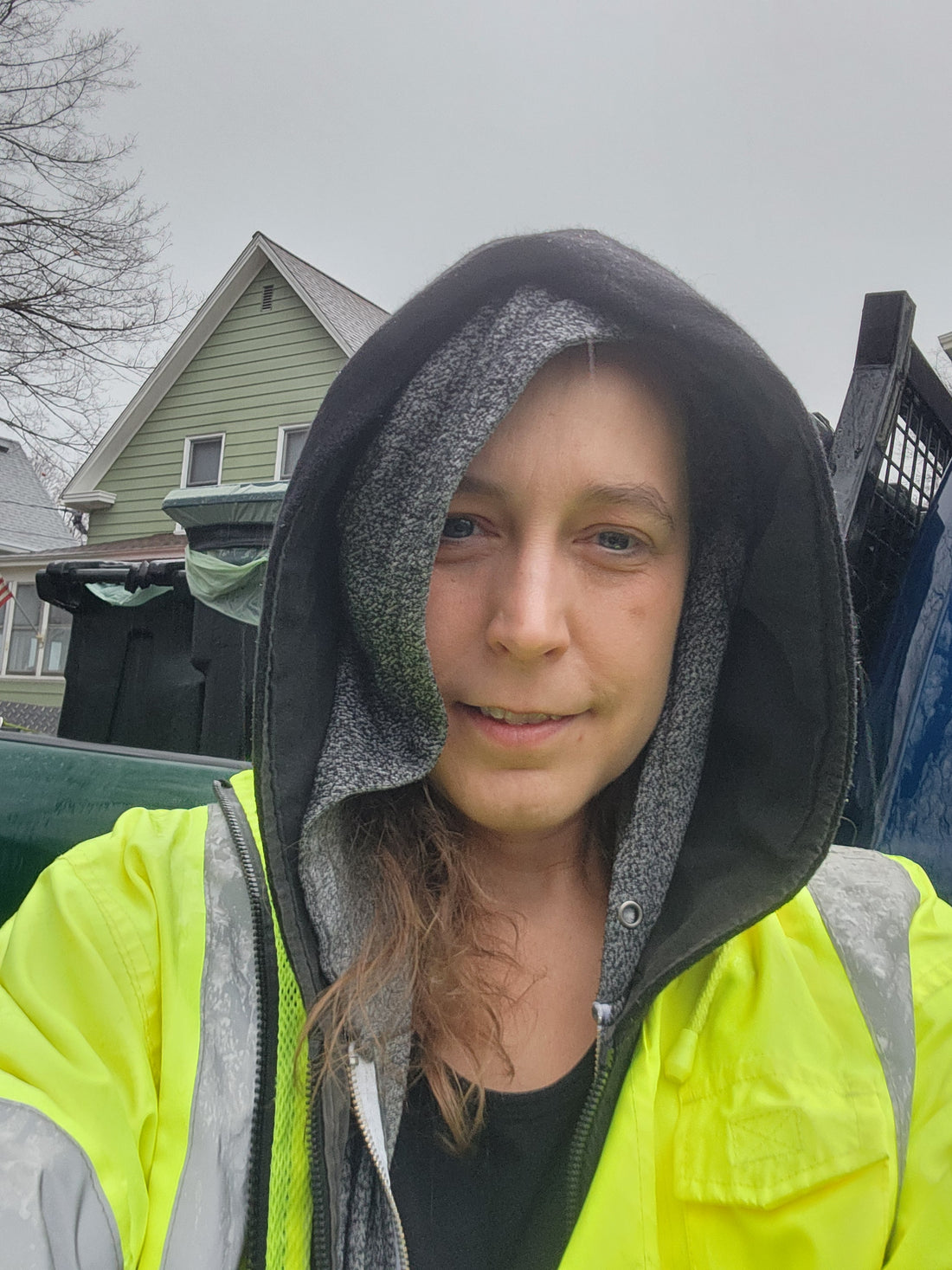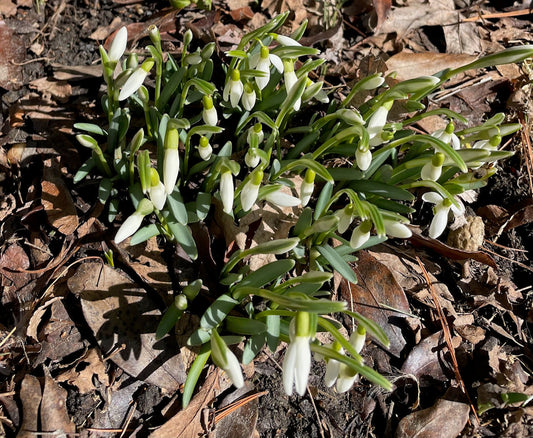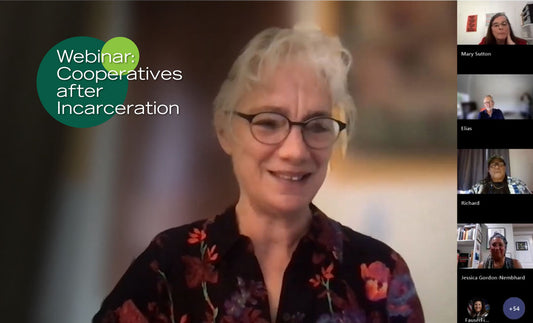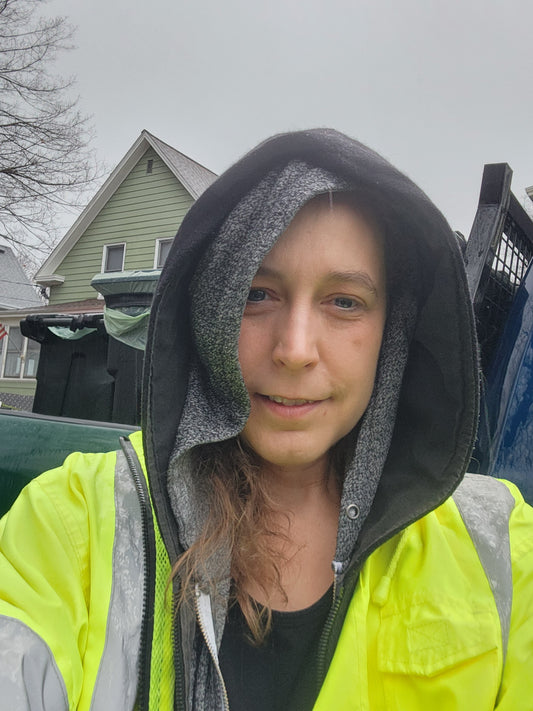On a recent unseasonably warm, wet December day when many Franklin County farms experienced the second major flood in a single year, Compost Co-op's partner Sarah joined Jim on a residential route. “When you told me I could go on the hauling adventure, I haven’t been so excited about anything for a long time,” Sarah said afterwards, soaking wet despite rain gear.
An engineer by profession, Sarah is inspired by hands-on, practical applications of engineering that benefit human beings and the planet. She is working with her students at the Rochester Institute of Technology to develop the Compost Co-op’s small-scale composting system with red wiggler worms and black soldier fly larvae.
“What does it mean to protect and sustain the environment, as an organism existing in that environment?” Sarah asks over a cup of tea. “I am not separate from the life around me. I am also composting inside. In terms of composting with flies, say, how can I scale up from an experiment on a lab bench to a system that will benefit everyone in a neighborhood?”
Sarah likes to observe how people come up with creative systems to address personal and planetary needs. Compost Co-op is building systems for diverting food scraps from the landfill into local composting operations and food systems — and at the same time jobs with and for folks who face barriers to employment and housing.
“I want to understand how it all works in real life,” Sarah reflects. “What kinds of materials are going into the buckets? What to do about all the water, which worms hate? How can we do this in a more urban environment, without access to farmland? And then there is the labor: how hard does the person have to work? How can we make it easier, safer?”
Some of our questions don’t have immediate answers. How do we get more people involved in the effort to divert food scraps from the waste stream while also building local, living-wage jobs? How do we get everyone to participate in this effort, from residents to teachers to legislators to city councilors to local businesses?
Without people, change won’t happen. Many thousands of tons of food waste will continue to be shipped by rail to South Carolina from western Massachusetts, increasing methane emissions from landfills and, when incinerated, childhood asthma rates.
At the Compost Co-op, we need members to pick up the food scraps, haul those scraps to local farms, test out what the worms and flies like and what makes them scramble to escape their bins. We need customers to sign up for our services. We need justice-oriented investors to help us get to the next level so that we can purchase appropriate equipment and build more jobs.
Sarah is motivated by her faith. “If we take care of one another, if we care for ourselves, we develop a sense of love and care in the world. Diverting food scraps together is taking care, building community.”
Cooperatively owned businesses are also taking care. Doing things locally requires more labor, distributes resources more equitably, and builds consensus. That’s very different from traditional businesses: in coops, the workers decide together how to move forward.
“Technology can be part of the solution to the climate issues we are dealing with, but it isn’t the main part,” Sarah reflects. “Building things together connects us. Though efficiency is very important, I don’t care as much about it as I do about being connected to others.”
So much is involved with building a business – and starting a new business venture. Thanks to Sarah and the whole team, Compost Co-op is cultivating participation and connection to where we live.




